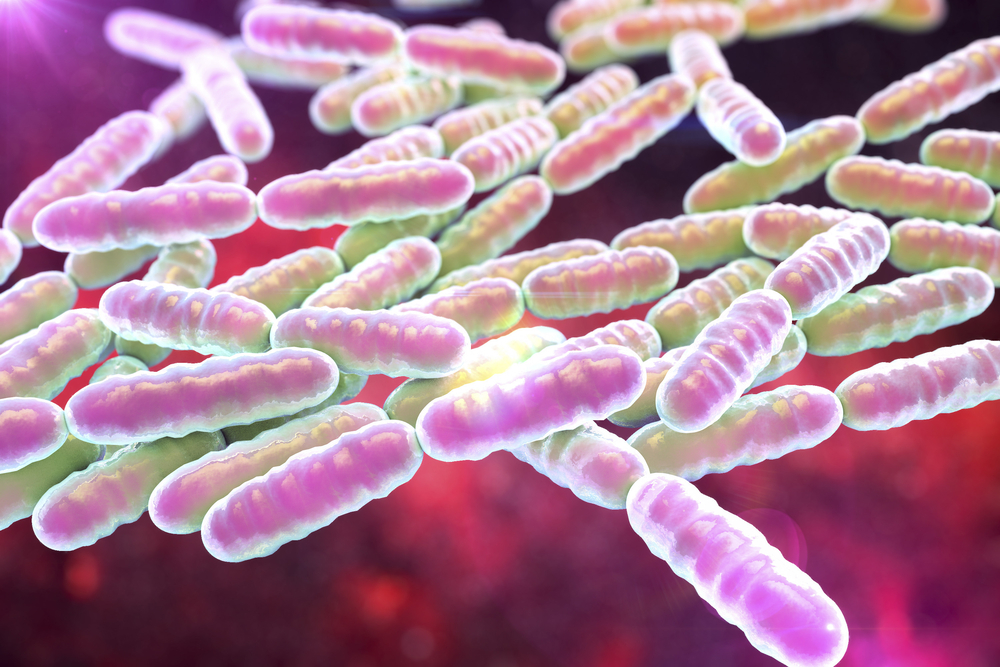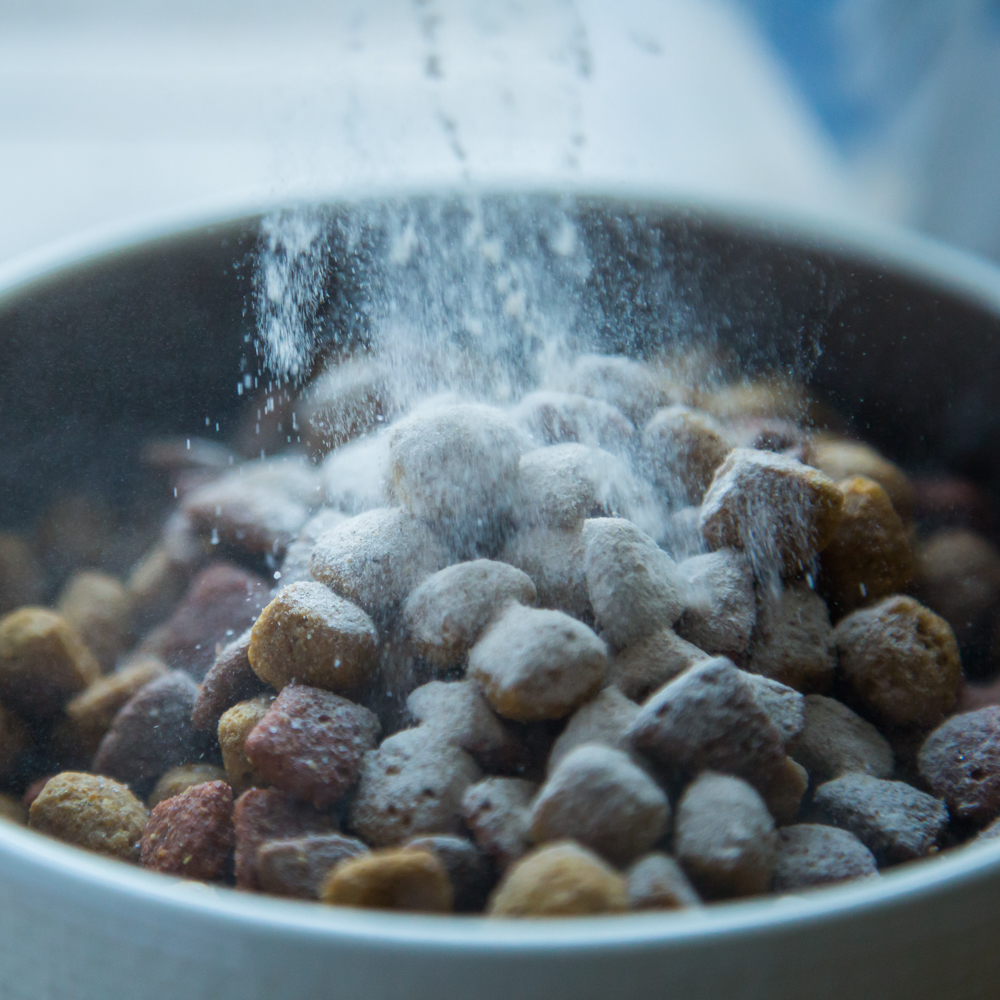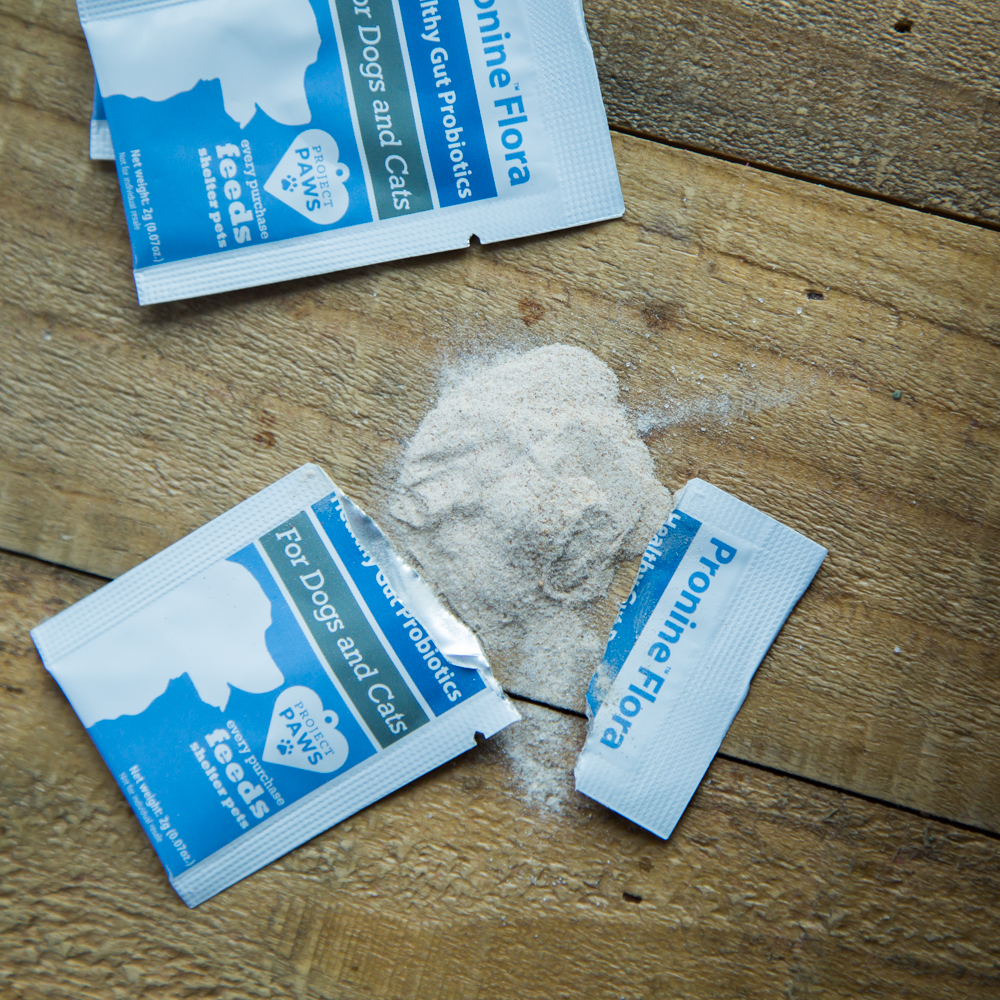
By now you have surely heard of the many health benefits probiotics offer humans, but did you know they are also incredibly beneficial for dogs?
Although most often associated with digestion, adding probiotics to your dog’s diet can also boost the immune system, support liver health, and improve skin and coat appearance.
What are probiotics for dogs?
In 1989, Dr. Roy Fuller set the currently accepted definition of a probiotic as “a live microbial feed supplement which beneficially affects the host animal by improving its intestinal microbial balance.” His now-famous paper was originally published in the Journal of Applied Bacteriology and is archived in the U.S. National Library of Medicine at NIH.
While the terms “microbe” and “bacteria” have negative connotations for many people, not all microorganisms are harmful. In fact, they are essential for maintaining the delicate balance that exists within the gastrointestinal tracts of humans and pets alike. “Good” intestinal bacteria aid in digestion, destroy disease-causing microorganisms, and even produce vitamins.
Evidence suggests that probiotics work by:
- Helping to maintain a desirable community of microorganisms
- Stabilizing the digestive tract’s barriers against undesirable microorganisms or produce substances that inhibit their growth
- Helping the community of microorganisms in the digestive tract return to normal after being disturbed (for example, by an antibiotic or a disease)
- Outcompeting undesirable microorganisms
- Stimulating the immune response

Benefits of probiotics for dogs
Probiotics are primarily associated with the treatment of diarrhea and the majority of dog-related probiotic research lies in the area of intestinal diseases. However, there is evidence to suggest that certain microorganisms can do much more for the health of your pup.
Related: Best Probiotics for Puppies
We now know that more than 70% of the canine immune system resides in the gut. Therefore, maintaining a healthy digestive system creates an environment that boosts the immune system and helps your pet battle disease.
Dr. Cailin R. Heinze, a board-certified veterinary nutritionist at the Cummings School of Veterinary Medicine, suggests that alterations in the number and type of bacteria in the intestines “may play a role in a number of chronic diseases such as allergies, immune-associated diseases, and even psychological diseases in humans and animals.”
Heinze also notes that recent studies indicate “fat versus thin animals, healthy versus sick, and even happy vs anxious animals have different types and amounts of gut bacteria and these differences can influence overall health.”
Daily supplementation with probiotics has been credited with additional benefits such as more regulated bowel function; healthier skin – including reduced allergy symptoms; a brighter, shinier coat; reduced gas; improved breath; and a reduction in yeast-associated disorders.

How long have probiotics for dogs been around?
Probiotics have been used to treat intestinal issues in humans for thousands of years. Naturalists in Rome, Asia and the Middle East recommended ingesting fermented foods long before the bacteria contained within them were recognized or understood.
It was not until the early 20th century that the concept behind probiotics was recognized by Nobel laureate, Elie Metchnikoff, who later came to be known as the “father of probiotics”. Metchnikoff observed that the lactic acid bacteria he named “Lactobacillus bulgarius” had anti-aging health benefits.
Other scientists continued Metchnikoff’s reseach after his death and eventually the term “probiotic”— which means “for life” in Latin — came into use.
The history of probiotic use in dogs is murkier, but their use in veterinary medicine is definitely growing. More vets are recommending probiotics not just to treat gastrointestinal illnesses, but also to help prevent a variety of conditions and promote overall health.
Are probiotics naturally occuring in a dog’s diet?
Natural, probiotic-containing ingredients are not found in your average bag of kibble, but “functional foods” are a growing trend for dogs. These diets are defined as “foods that contain some health-promoting components beyond traditional nutrients”.
So-called functional foods may claim to contain probiotics, but buyer beware: these microorganisms are quite sensitive to heat and moisture, leaving many to wonder if they are capable of surviving long enough to grow and reproduce in the intestine after being eaten.
Probiotics cannot survive in canned food due to the extreme heat of the canning process, so only dry dog foods can potentially be classified as probiotic-containing functional foods.
However, a 2003 study published in The Canadian Veterinary Journal found that of 19 dry commercial pet foods tested for the presence of live bacteria species listed in their ingredients, not a single one was true to their claim.
While the popularity of probiotics in dog food has certainly increased since 2003, there is no evidence that the quality control process has improved. Therefore, veterinarians and nutritionists do not recommend relying on “functional” pet foods and supplements as trustworthy sources of probiotics.
Our recommendation:
Providing a probiotic supplement is the easiest way to ensure that your pup is getting the microflora he or she needs to encourage an optimally functioning GI tract. Pronine™ Flora, our 4-in-1 probiotic supplement, not only contains pet-specific probiotics, but also boasts prebiotics (food for the good bacteria), digestive enzymes, and digestive herbs, all in a tasty, easy to administer powder form. Pronine™ Flora comes in individual, single-serve packets to ensure freshness.


 Toledo, United States.
Toledo, United States.